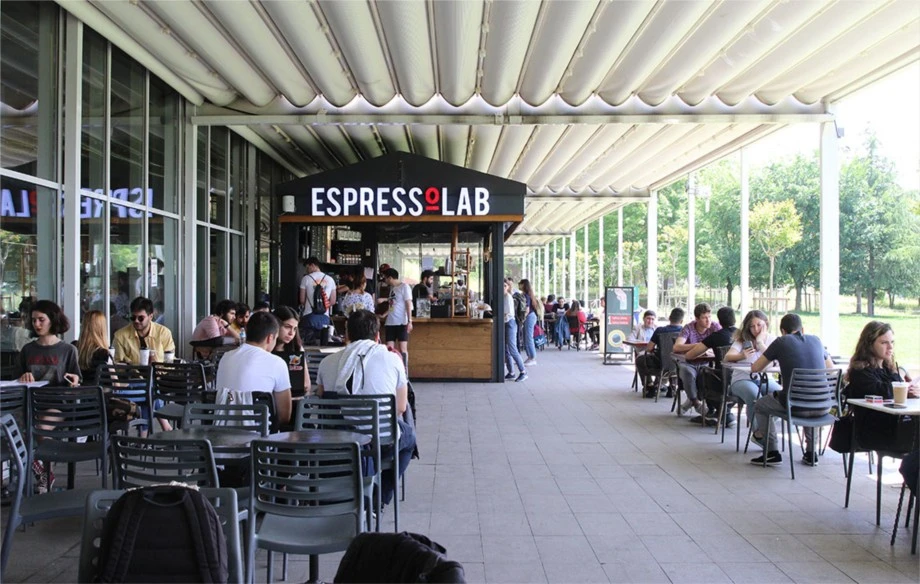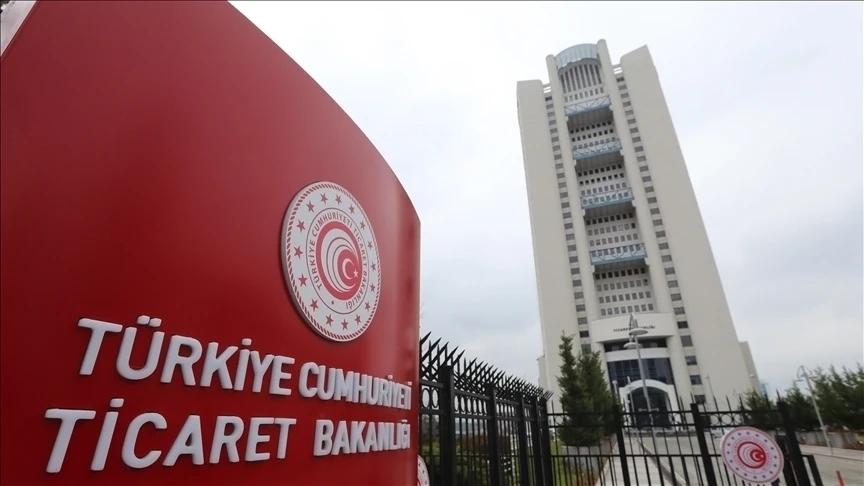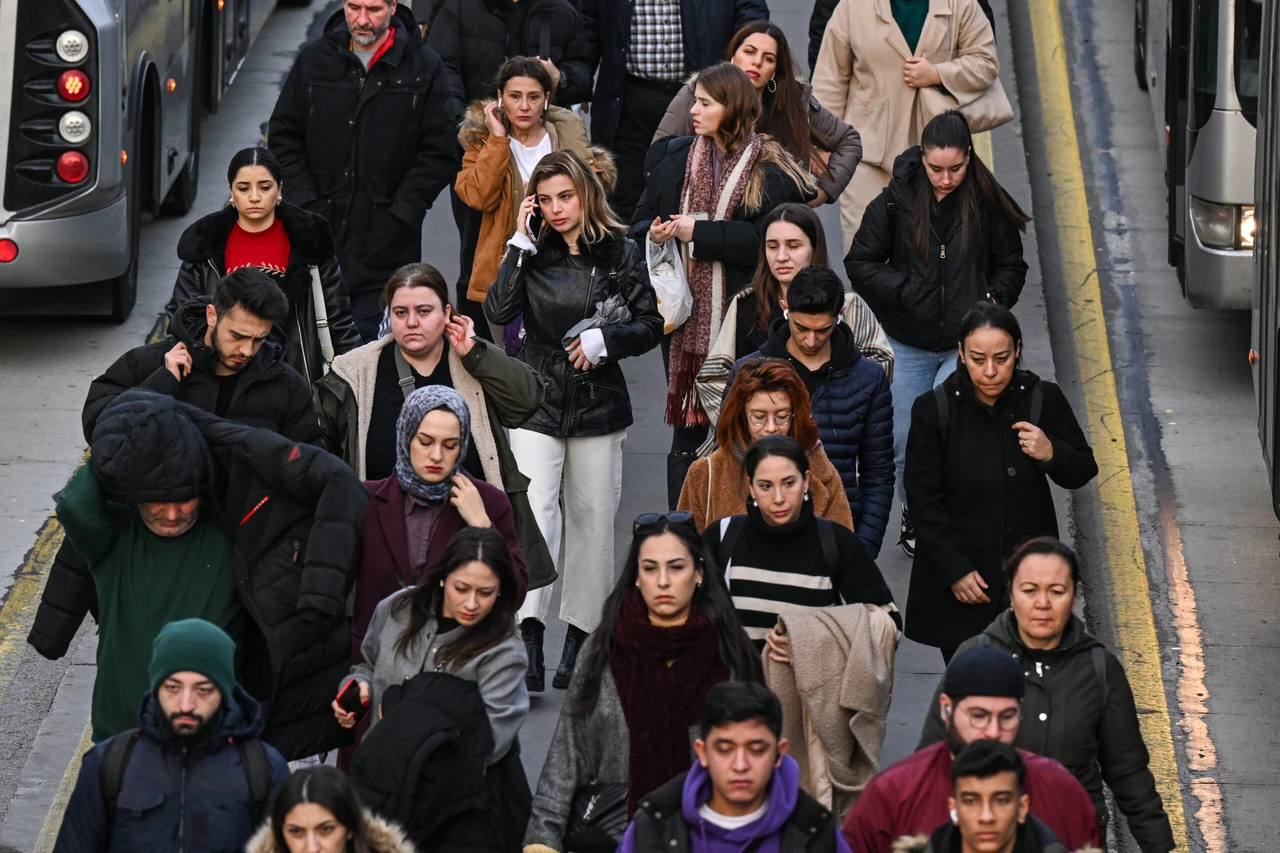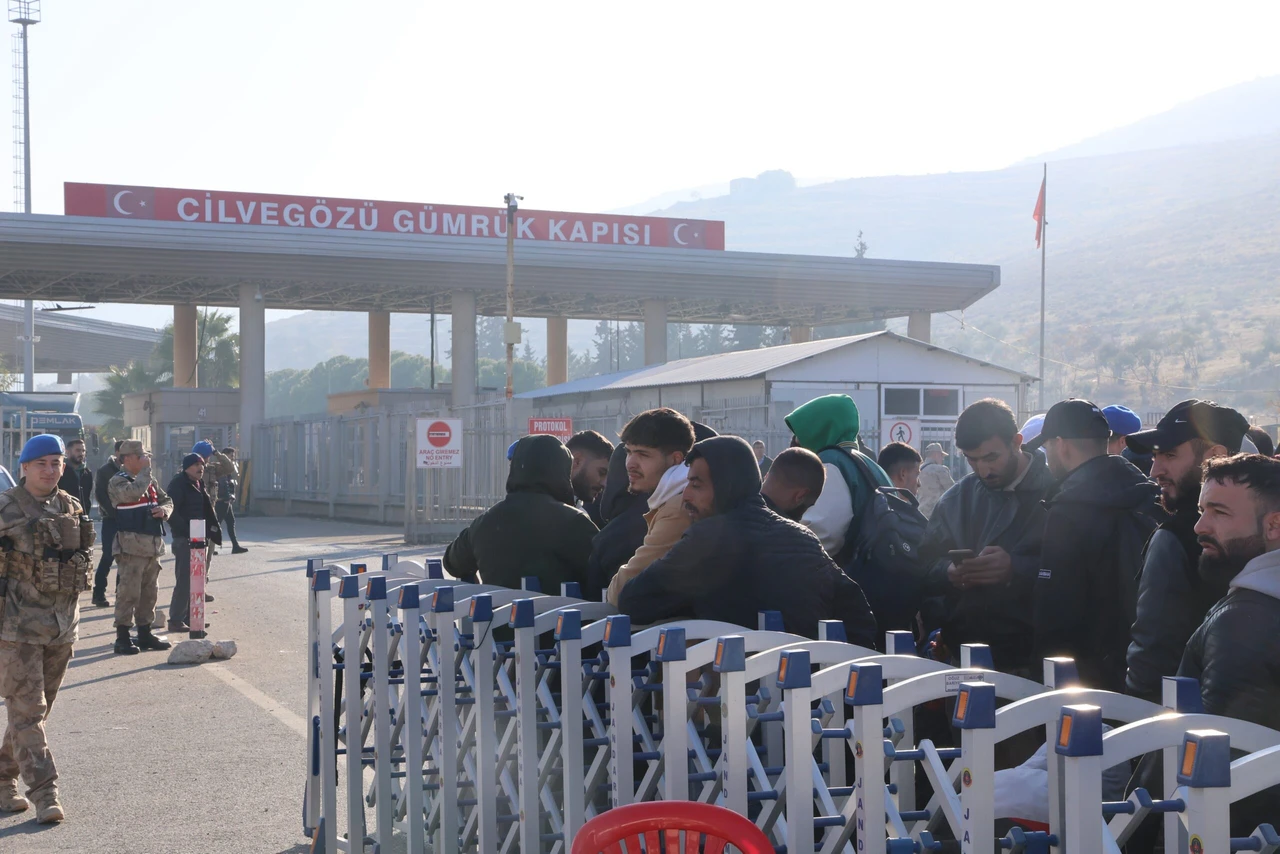Why coffee chain Espressolab became a polarizing symbol of boycott in Türkiye?
 An image showing Espressolab branch in Istanbul’s Resitpasa neighborhood, Istanbul, Türkiye. (Espressolab official website)
An image showing Espressolab branch in Istanbul’s Resitpasa neighborhood, Istanbul, Türkiye. (Espressolab official website)
After the arrest of former Istanbul Mayor Ekrem Imamoglu over corruption charges this week, reactions have grown louder, with protests spilling into the streets. As a result, citizens have begun calling for boycotts of certain brands, including coffee chain Espressolab, that are believed to be aligned with the ruling government.
Recently, Espressolab, a local coffee brand, has become the target of boycott calls on social media. The boycott appeal came primarily from Ozgur Ozel, leader of the main opposition Republican People’s Party (CHP), which has fueled a growing backlash against the brand while supporters of the ruling government are lining up at the coffee shop.
Before Ozel’s official support for the boycott calls, many leftist groups in Türkiye had already called for boycotting the coffee chain over its ties to the ruling government.
In response to the calls for a boycott, the ruling Justice and Development Party (AK Party)-affiliated youth groups mobilized to show their support for Espressolab. In turn, the company broke its silence, issuing a statement saying, “We don’t understand why we are being boycotted.”
The opposition’s call to boycott a successful Turkish brand drew the ire of the conservative part of Türkiye’s political spectrum, as they criticize the opposition camp’s inaction during widespread Starbucks boycotts because of Israeli genocide in Gaza.
Espressolab’s origins: Founded by Esat Kocadag
Espressolab was founded by Esat Kocadag, who is part of the fourth generation of his family in the food industry. The coffee chain is a subsidiary of Kocadag Yatirim, the family’s investment company.
The story of Espressolab, according to Kocadag Yatirim’s official website, began in 2014 with the opening of the first store at Istanbul Bilgi University. As of March 2024, the brand operates some 360 stores across Türkiye, Germany, Portugal, Egypt, Qatar, Jordan, Morocco, South Africa, the UAE, Cyprus, and Iraq.
Espressolab’s flagship location, the Espressolab Roastery located in Istanbul, boasts the title of Europe’s largest coffee experience center, covering 6,000 square meters. This facility includes various areas such as the coffee shop, roastery, bakery, cool juice, workshop, and auditorium.
During the protests, some students attempted to shut down the first branch of Espressolab in Bilgi University on March 20.
Ozel’s call for boycott
During a speech in Istanbul on March 24, Ozel addressed the boycott calls against Espressolab. “I love all types of coffee… Turkish coffee, filter coffee—I love them all. Whatever coffee you drink, just don’t drink it from Espressolab! They claim they want to take over the campuses… We will not visit Espressolab on campus; we will not drink their coffee,” he stated.
His words fueled the growing anger toward the brand, especially among CHP voters. The stores witnessed vandalism across several cities, eventually resulting in the addition of Turkish flags outside of stores.

High-profile pro-government visits Espressolab
Espressolab’s increasing recognition in Türkiye has been fueled in part by its association with the ruling government’s prominent political figures.
In 2020, after the conversion of Hagia Sophia into a mosque, President Recep Tayyip Erdogan and Nationalist Movement Party (MHP) leader Devlet Bahceli visited an Espresso for coffee following a prayer service.
A young individual who was present shared a photo of the visit on social media with the caption, “After Friday prayers, we had coffee at Espressolab with friends.” The post quickly gained attention, and Espressolab became the subject of a viral conversation, with many viewing it as a subtle advertisement.

Espressolab’s statement
In response to the ongoing boycott calls, Espressolab issued an official statement clarifying its stance:
“We don’t understand why we are being boycotted,” the company said. The statement emphasized that Espressolab was founded within a university setting in 2014, without any political connections or state support, and has since grown into a brand representing Türkiye across 15 countries. The statement continued: “There are no hidden partners or supporters behind our brand. Espressolab is solely a company of the Kocadag family, with no other partners. For the first time in the coffee industry, which is dominated by global giants, a Turkish initiative has grown to this scale and entered the global stage. This success is not just ours; it is Türkiye’s success.”
Espressolab’s business model relies on a franchise system, with 93% of its 360 stores operated by independent entrepreneurs and business partners. The company emphasized that its focus is not on politics but on coffee. “As we have done since day one, we will continue to bring happiness into the lives of young people. Our doors are open to everyone,” the statement concluded.
Polarization, divide on where to invest
Espressolab is a brand that has made a significant impact on the Turkish coffee scene and has expanded internationally.
The recent political and social tensions surrounding its boycott have brought it into the spotlight, reflecting the complex relationship between politics, business, and public sentiments in Türkiye.



